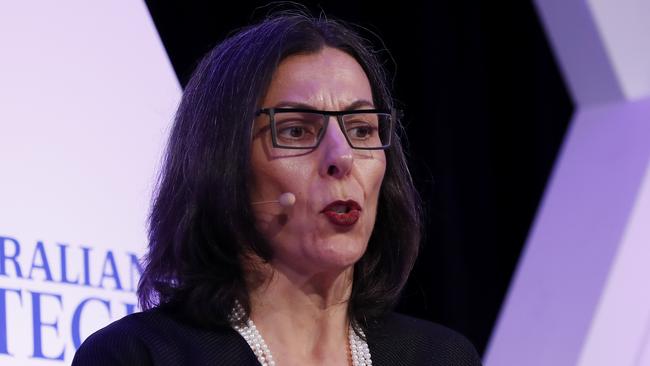Coronavirus: Economy overrides security in China dealings, says business group chief
A key business group said economic interests should take precedence over national security concerns.

The gulf between the nation’s business and national security communities on Australia’s stance towards China has widened after a key business group said economic interests should take precedence over national security concerns.
Australia China Business Council chief executive Helen Sawczak said Australia needed to “keep on top of” national security issues “but not to the detriment of our economic interests”.
“There has been a lot of talk about national security concerns and that they should override our economic interests,” she said in an online forum with Huawei’s Jeremy Mitchell. “Well, if the spooks were managing our economic interests, this country would go down the gurgler.”
As China moves to slap trade sanctions on Australian beef and barley, Ms Sawczak said the Morrison government’s call for an inquiry into the coronavirus had undermined the Australia-China relationship.
“To go out like a shag on a rock, little Australia demanding an inquiry and insinuating blame, was probably not a great foreign policy move,” Ms Sawczak said.
“It is of great concern when the government does not handle China diplomatically.”
The comments prompted a furious response from the national security community, and MPs on both sides of parliament.
Australian Strategic Policy Institute executive director Peter Jennings said the “just shut up and take money from China” position of many Australian business leaders was “thoroughly discredited”.
“The business community needs to understand there is more to the national interest than their business interests,” he said. “Clearly, there are some folk in the business community who are taking a very long time to understand that really fundamental point.”
Liberal Andrew Hastie, the chair of parliament’s joint security and intelligence committee, rebuked Ms Sawczak in parliament, saying she had “denigrated” the nation’s security and law enforcement agencies and demonstrated “a low estimation of our country”.
He said the nation’s security agencies “devote their time and energy to keeping the Australian people safe … I know who I’d rather have watching my back.”
Liberal MP and former diplomat Dave Sharma said a business perspective was “always valuable” but “not the basis for determining a nation’s foreign policy”.
“Views that suggest we should disregard or sacrifice Australia’s national security interests in the interests of pleasing another country are not particularly helpful or sophisticated,” he said.
Labor backbencher Kimberley Kitching said: “Our intelligence and security agencies are world-class and work tirelessly to defend Australians — even those who aren’t grateful. The fact our national interest does not always align with that of China should not be a controversial proposition.”
Ms Sawczak said Australia should avoid “politicising” the economic relationship with China by raising thorny issues behind closed doors. “National security concerns and global humanitarian issues like pandemics are really important issues, but let’s not play it out in the public arena,” she said.




To join the conversation, please log in. Don't have an account? Register
Join the conversation, you are commenting as Logout